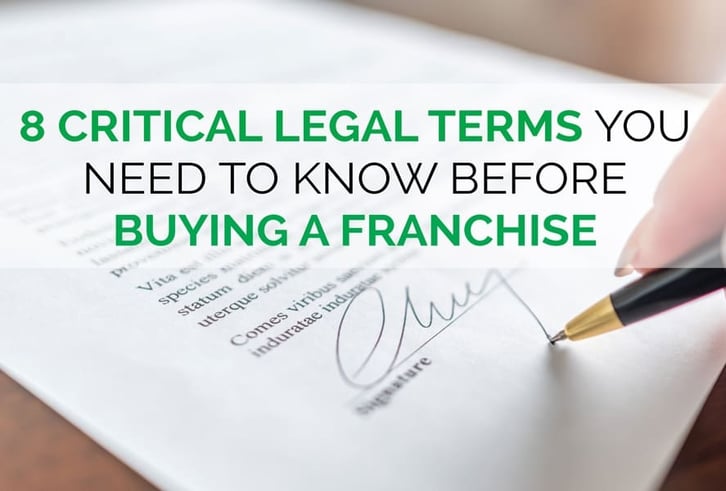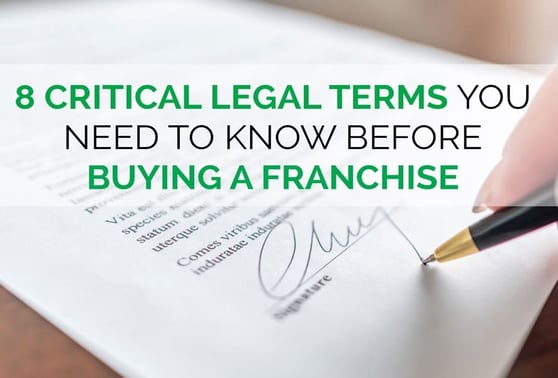Starting a new business comes in hand with a lot of risks. Some business professionals choose to mitigate these risks by purchasing a business franchise rather than striking out on your own. After all, as a franchise business owner, you’ll be starting an independent branch of an existing business. This will provide you with the benefits of business ownership as well as the support that you need to succeed. Better yet, a franchise business will include an existing brand, meaning that much of your marketing has already been taken care for you.
If you’re planning to become a franchise owner, you need to make sure that you understand the contract between you and the franchise business. This is often the most time-consuming and challenging task when purchasing a franchise business due to its complexity. Fortunately, to get you caught up on the basics, we’ve shortlisted a few important terms to help understand the legal terminology of your franchise contract.
Franchisor
This is the business that is willing to let someone, the franchisee, use its brand and run a branch of its business in exchange for a fee.
Franchisee
The individual who purchases a franchise business. This individual must operate the specific location of the purchased business. They are responsible for certain onsite operating decisions, but many other decisions, such as business brand, name, and/or products sold are already determined by the franchisor and must be maintained by the franchisee.
Franchise Fee
There is an upfront fee that must be paid to purchase a franchise, which is the right to use the franchisor's brand and run a branch of its business.
Franchise Disclosure Document
A legal document franchisors utilize to provide potential franchise buyers with information about the franchised business. This often includes background information, the costs of entering into the business, the legal obligations of the franchisor and franchisees, etc. The disclosure of financial performance representation in the disclosure document is optional.
Franchise Agreement
A legal contract in which a well-established business, the franchisor, consents to provide its brand, operational model and required support to another party, the franchisee, for them to set up and run a similar business in exchange for a fee and some share of the income generated. The franchise agreement lays out the details of what duties each party needs to perform and the protocol that must be followed in different circumstances. Naturally, different franchise agreements will have differences in the exact duties of the franchisor and the franchisee.
Franchise Term
Like its name suggests, this is the length of time that the franchisee will be permitted to use the franchise.
Royalties
This is share of the franchisee's income from the location that is paid to the franchisor. They can be either a fixed fee, a percentage fee, or a combination of both calculated on either a weekly, a monthly, or some other basis.
Franchise Ongoing Fees
These are fees charged on a periodic basis by the franchisor for franchisor services such as advertising, training, and business tools.
Learn More Franchising Legal Terms
Of course, these are but some of the franchising legal terms that can be found in a franchise agreement. To be fully prepared, make sure to download our full legal glossary.







